Nielsen is founded and incorporated in Chicago

Engineer Arthur C. Nielsen borrows $45,000 to start a business that will test the quality of conveyor belts, turbine generators
1923
First marketing research and performance surveys produced
1924
Capital increased from $45,000 to $55,000
1927
First industrial market survey produced
1929
First consumer market survey produced

1931
Capital increased from $55,000 to $93,333

Nielsen launches an index to measure drug and retail store sales
During the Depression, Nielsen shifts to measuring consumer sales
1934
Company debuts the department store and food indexes
1934
Nielsen begins measuring food and department store sales
1934
Client Service team is formed to help clients maximize effectiveness of Nielsen data
1935
Arthur C. Nielsen invents market share concept when auditors survey store shelves to determine sales patterns
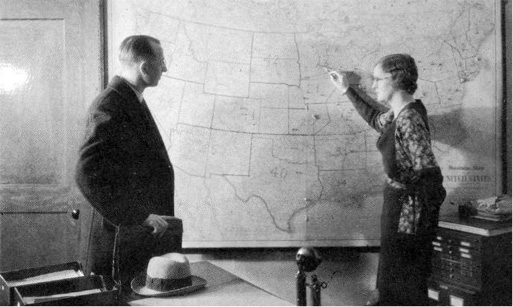
1936
Nielsen launches its general store index
1936
Nielsen acquires rights to the Audimeter, a device that attached to a radio to record when it was on and what station it was tuned to
1936
Company begins developing its Radio Index
1938
The Liquor Index launches
1939
Nielsen opens office in the U.K., the company’s first international office
1941
Company doubles the size of its U.S. headquarters building due to continued growth
1942
The Nielsen Radio Index is launched in the U.S.
1944
Nielsen opens office in Canada
1946
First Nielsen mailable Audimeter is presented to radio industry
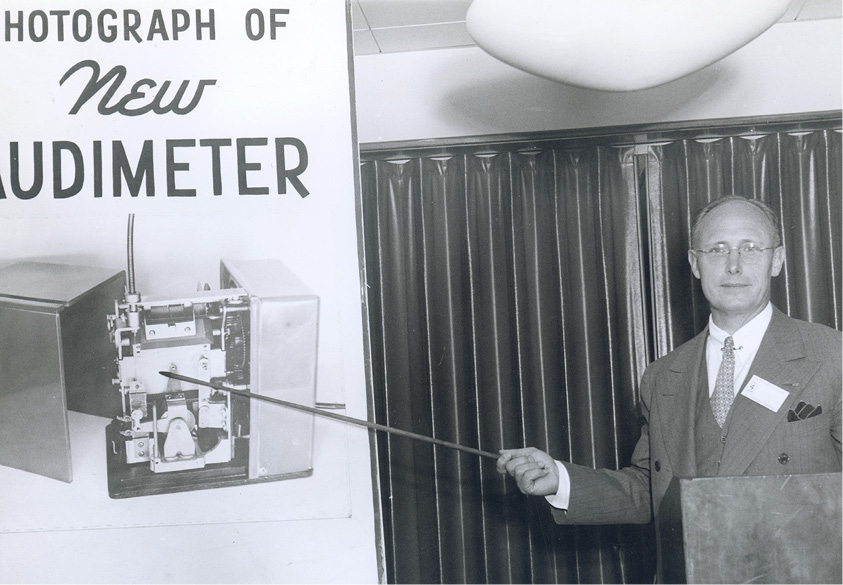
1947
The Consumer Index debuts
1948
Nielsen introduces the Pharmaceutical Index
1948
Nielsen opens office in Australia
1948
Art Nielsen, JR. champions Nielsen’s investment in Univac 1, the first commercial computer to attract widespread public attention
1950
The Nielsen Television Index starts in U.S. using a device based on the Audimeter
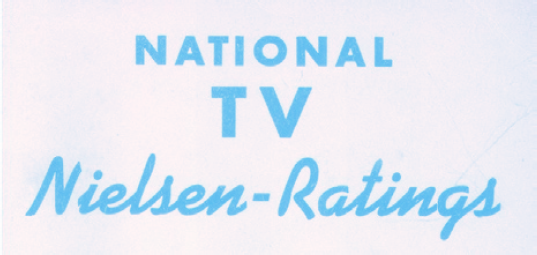
1950
Nielsen launches TV audience measurement in the U.S.
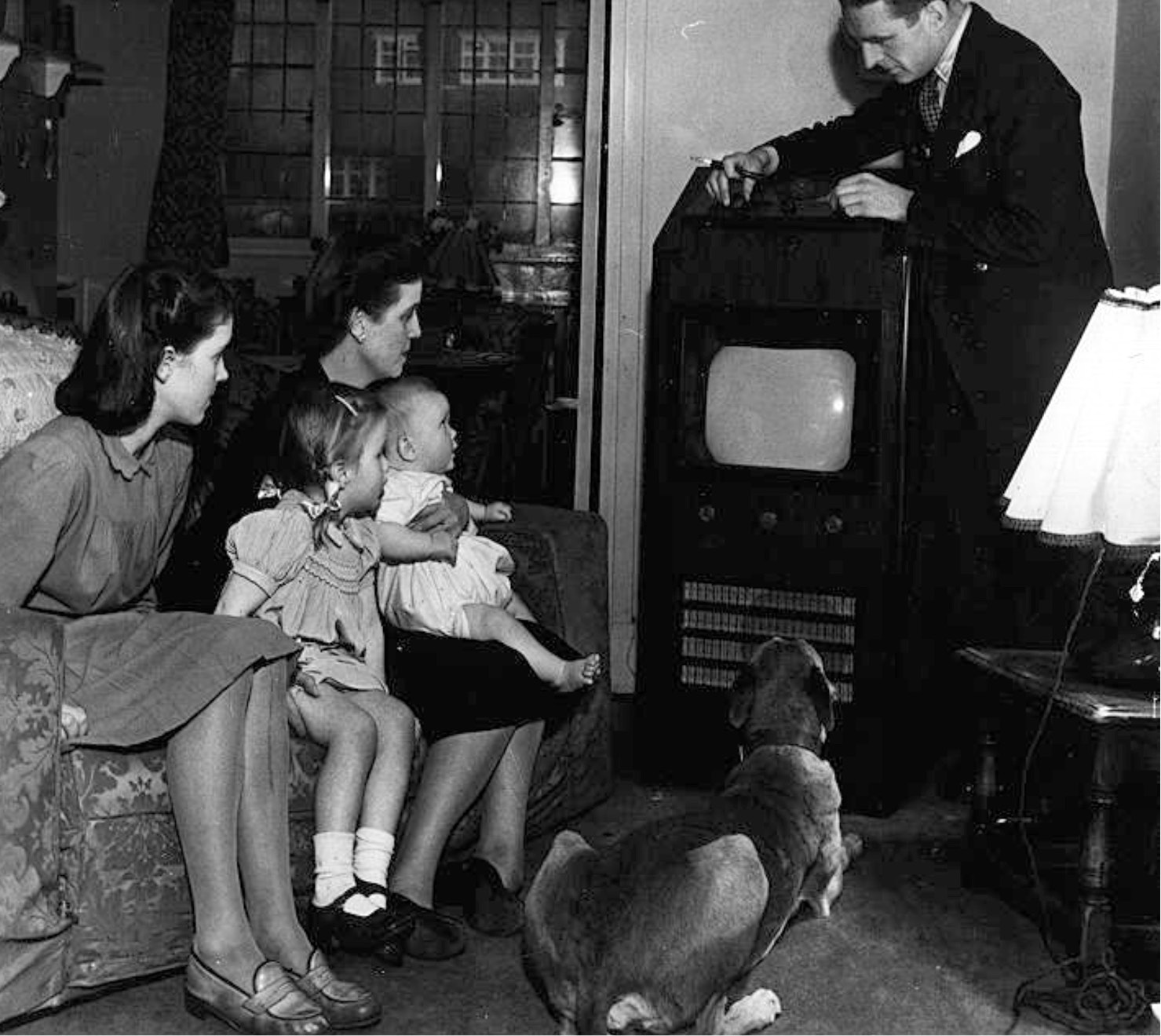
1952
Nielsen office opens in the Netherlands
1953
Company increases the size of its U.S. headquarters building by 60%
1953
Nielsen offices open in New Zealand and Belgium
1954
Nielsen Station Index Service formed to provide local market TV audience measurement in U.S.
1954
Nielsen office opens in Germany
1954
The Nielsen Station Index service expands to the top 30 U.S. markets
1955
Nielsen creates the designated market area concept in the U.S., establishing parameters for a specific television market
1955
Nielsen office opens in Ireland
1955
Nielsen establishes services and a European central operations facility in Switzerland
1956
Company opens an office in Fond du Lac, Wisconsin, Nielsen’s first branch operations facility in the U.S.
Arthur Nielsen Jr. becomes company president
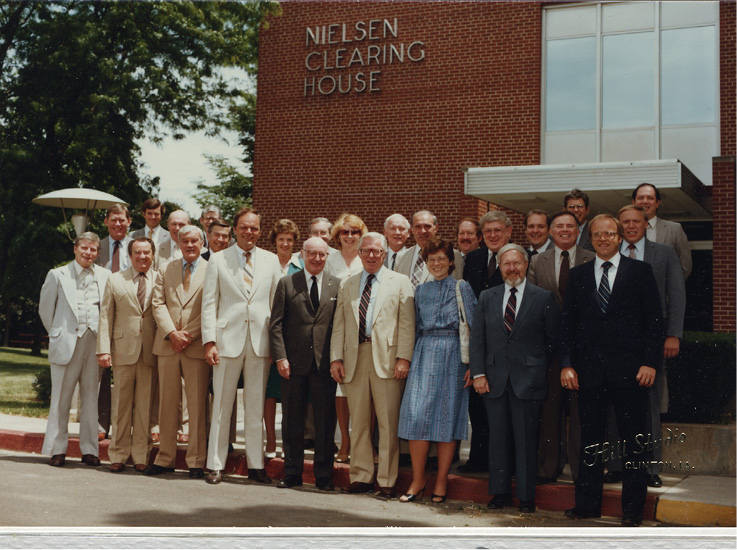
1957
Nielsen establishes a coupon clearing house in the U.S., streamlining couponing for manufacturers and retailers
1957
Nielsen office opens in Sweden
1958
Nielsen Company stock made available to the U.S. public
1959
Company establishes Montreal branch to provide better service to Canadian clients
1959
Nielsen office opens in France
1960
Nielsen office opens in Japan
1961
Nielsen offices open in Luxembourg and Austria
1961
Nielsen launches new product service to evaluate the sales of new consumer products as manufacturers broaden product lines
1962
Nielsen measures that more than 29 million homes tuned in to watch NASA blast astronaut John Glenn into space
1962
Company opens new Canadian office building in Toronto
1963
Nielsen office opens in Italy
1963
Art C. Nielsen Sr., Chairman and Founder, receives Parlin Memorial Award, which honors people who have made outstanding contributions to the field of marketing research
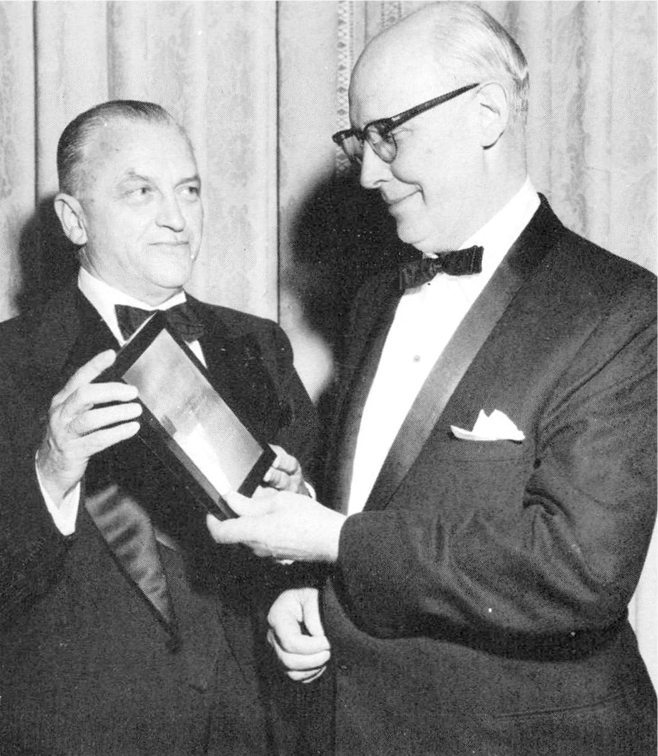
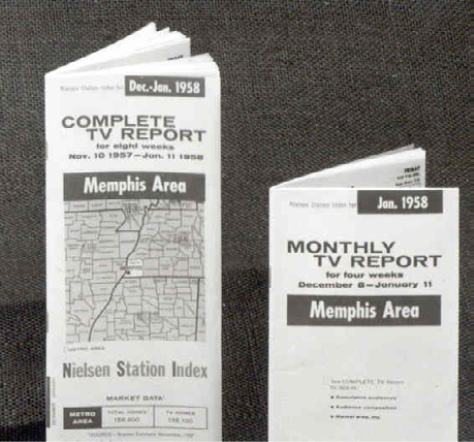
1963
Measurement of sales at mass merchandisers debuts
1965
The Nielsen Station Index Service introduces the Viewers in Profile (VIP) report, which stations use to sell TV time to advertisers in the U.S.
1970
Los Angeles becomes the second Nielsen Station Index metered market
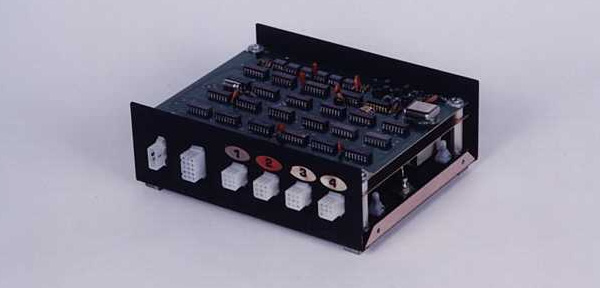
1971
Nielsen introduces the Storage Instantaneous Audimeter, capable of storing TV set usage data and forwarding data overnight via phone line
1973
Company begins offering national daily TV ratings in the U.S.
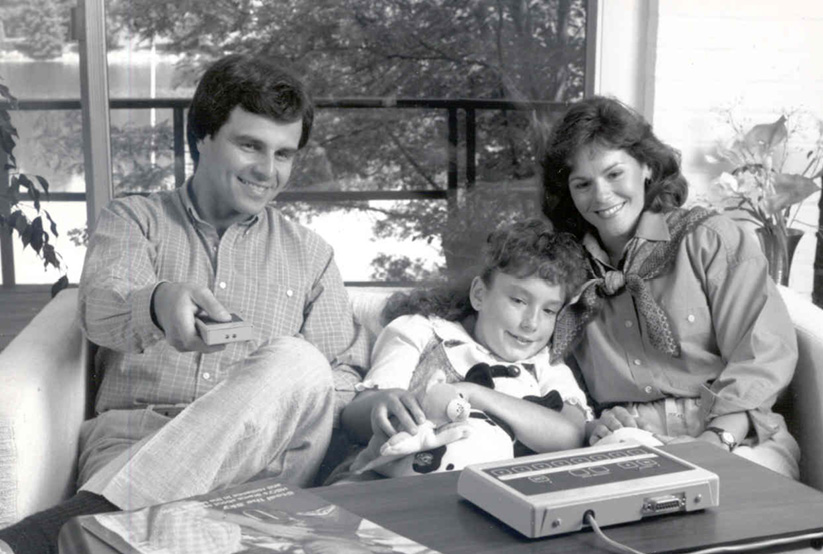
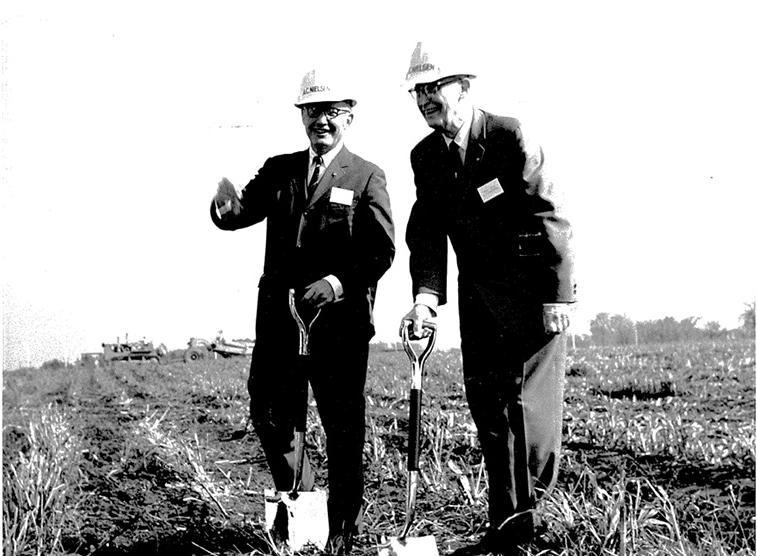
1973
Nielsen moves its headquarters to Nielsen Plaza in Northbrook, Illinois
1976
Chicago becomes a metered local TV market
1977
Nielsen implements automated measurement of TV lineups, electronically tracking network feeds to local affiliates
1977
Nielsen pioneers scanning of retail store universal product codes (UPCs) in the U.S.
1979
Company introduces Scantrack, giving clients the ability to track specific market trends, produce custom reports and develop better marketing and distribution plans
1980
Nielsen launches Scantrack service in U.S.
1980
Company debuts Nielsen Homevideo Index to measure viewing of cable, VCRs, and other new technologies
1982
The Company’s new Piggyback home unit allows Nielsen to use household phone lines for data transmission
1983
The final episode of M*A*S*H earns a 60.2 Nielsen rating, the record for the highest rated telecast in the U.S. to date
![]()
1984
The Dun & Bradstreet Corporation acquires Nielsen
1985
Company forms Nielsen Syndication service to provide TV audience measurement for growing syndication business
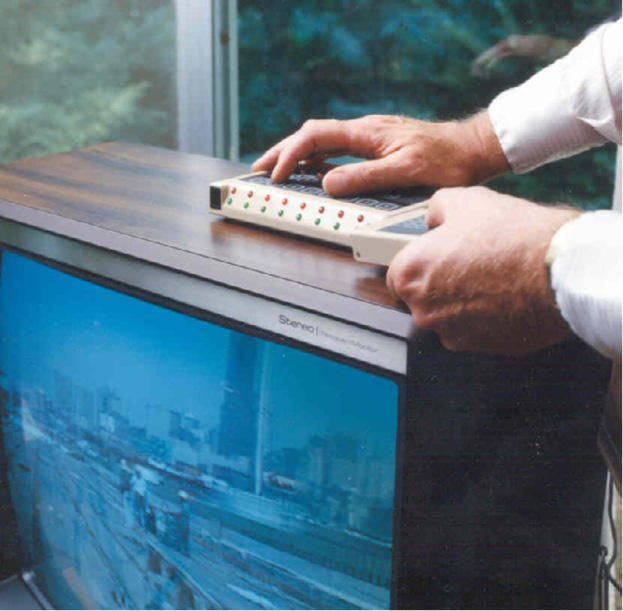
1985
Nielsen meters TV viewing in more than 5,500 U.S. homes and generates approximately $100 million in revenue
1987
Company launches the People Meter in the U.S. to produce national TV ratings with daily demographic data
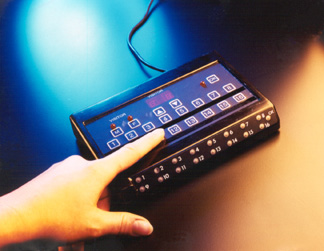
1988
Nielsen Homevideo Index continues to add channels as cable reaches 54% of U.S. TV households
1988
Company launches cash slip methodology to measure shopper activity in discount supermarkets
1988
Nielsen introduces hand-held scanners so that household members can record UPC-coded purchases
1988
Nielsen acquires Logistics Data Systems, whose software helps profitably manage shelf space and display areas
1991
Nielsen consumer panel expands to 40,000 U.S. homes
1991
World’s single-source panel established in Germany
1992
Company offers national and local Hispanic services in the U.S., and Los Angeles is the first local Hispanic market

1992
Nielsen Workstation delivers Nielsen data to the personal computer
1992
The Nielsen Workstation wins second place at the Information Industry Association’s Product Achievement Awards
![]()
1993
Nielsen becomes the first to offer scanning-based information from warehouse clubs in the U.S.
1993
Nielsen Opportunity Explorer and Nielsen Promotion Simulator place first in the Information Industry Association’s Product Achievement Awards
1994
Scantrack launches in Western Europe
1994
Nielsen acquires Survey Research Group (SRG), the market research leader in Asia
1994
Nielsen establishes joint venture with Amer World Research in Eastern Europe, North Africa and the Middle East, expanding global footprint to 76 countries
1994
Nielsen announces the U.S. Hispanic Consumer Panel
1995
Nielsen now operates household panels in 15 countries, having added more than 20,000 households in Canada, South Africa and France
1995
Nielsen asserts its dominance in the marketing information industry by successfully winning back 26 consumer packaged goods clients
1996
Dun & Bradstreet splits Nielsen into two separate companies; one responsible for TV ratings, and one responsible for consumer shopping trends and box-office data in the U.S.
1999
Dutch publishing company VNU acquires Nielsen’s watch business
2000
Nielsen launches weekly internet usage and advertising service as nearly 100 million Americans are going online
2000
Launch of National Census Service that covers 15,000 stores in the U.K.
2002
Launch of European Operations Facility
2003
Nielsen doubles its national TV sample from 5,000 to 10,000 U.S. households
![]()
2003
Nielsen Global Technology and Information Center opens in Florida

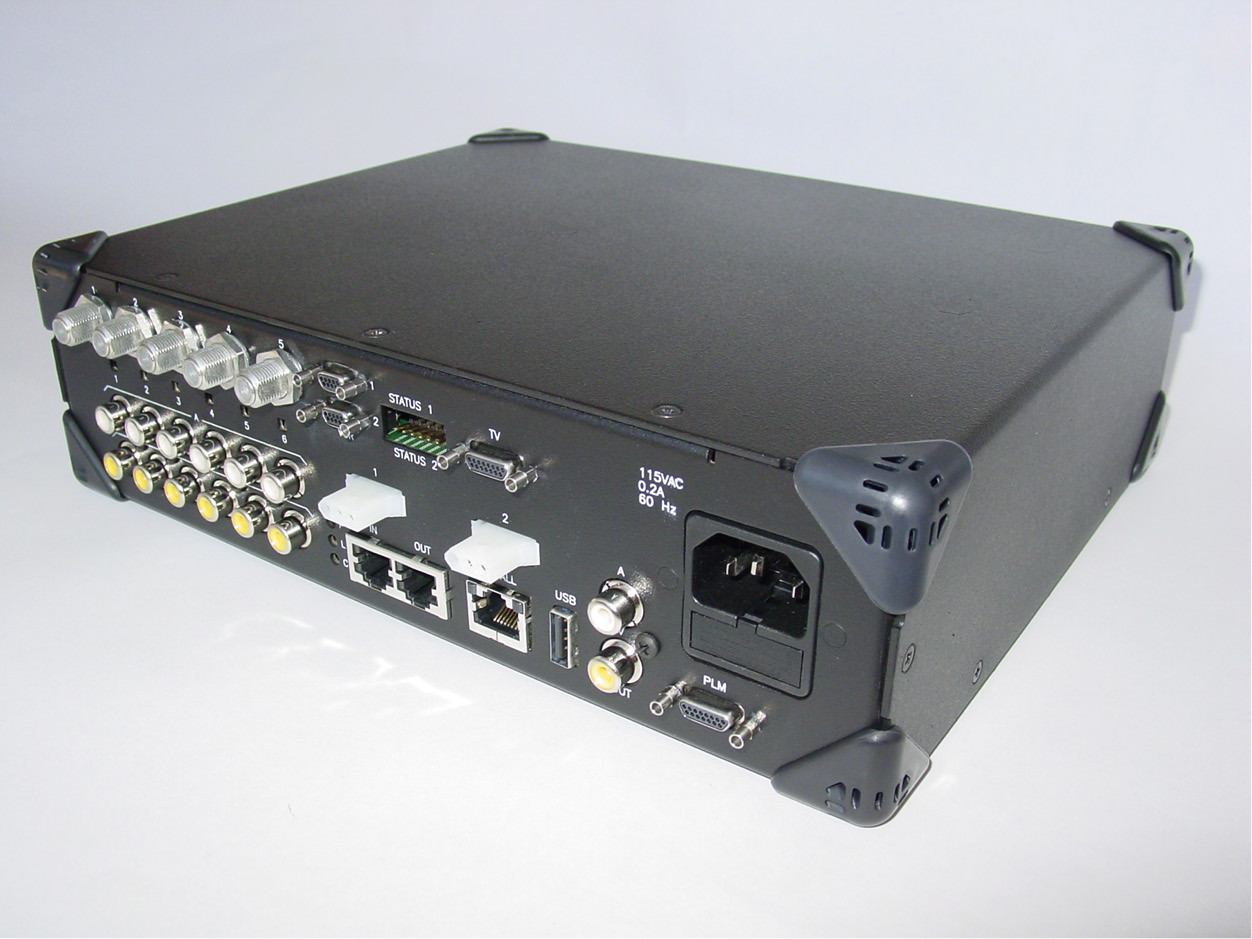
2005
In the U.S., Nielsen introduces the active/passive meter to capture viewer information in digital and analog viewing environments
2005
Nielsen's U.S. Syndicated Television Audience reports include time-shifted viewing for the first time
2006
David L. Calhoun becomes CEO of Nielsen
2008
Nielsen develops reports that detail media usage across screens - television, internet and mobile devices - to meet broadcasters’ expanding needs
2011
Online Campaign Ratings launches, setting a new standard in online ad measurement
2011
Nielsen issues initial public offering and lists as a publicly traded company on the New York Stock Exchange
2012
Nielsen becomes the first official market researcher for the Olympic Games
2013
Nielsen acquires Arbitron and launches Nielsen Audio
2013
Nielsen is selected for the Standard & Poor’s 500 Index
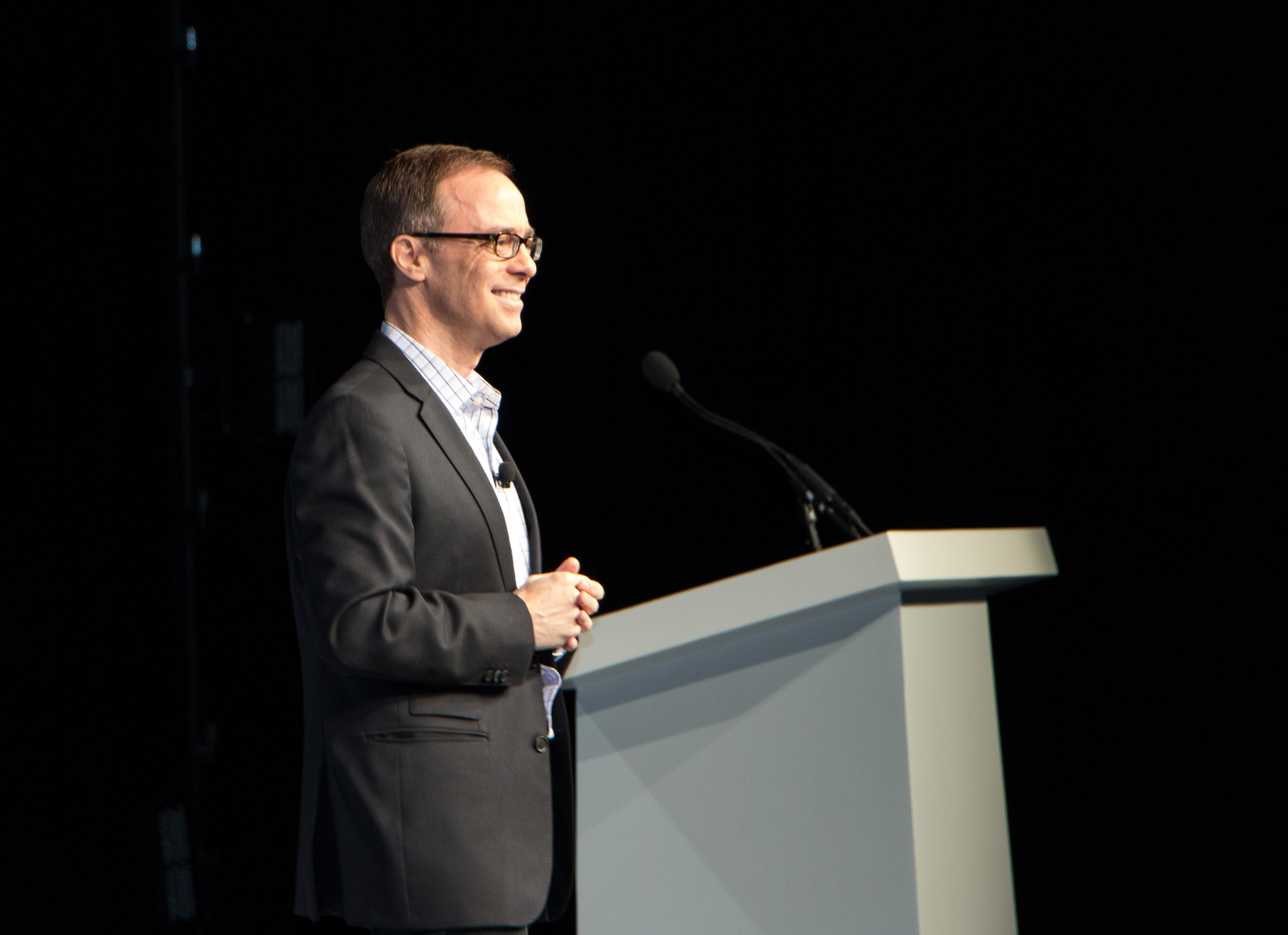
2014
Mitch Barns becomes Nielsen’s CEO
2015
Nielsen named to the DiversityInc Top 50 Companies for Diversity for the second consecutive year
2015
Nielsen acquires eXelate, setting the stage for the development of the Nielsen Marketing Cloud
2015
Digital in TV Ratings launches
2015
Company debuts Nielsen Total Audience, bringing comparable representative measurement of media consumption across all platforms and devices to the industry for the first time
2017
Nielsen acquires Gracenote, the industry’s premier provider of media and entertainment metadata
2017
Digital in TV Ratings becomes the second component of the Nielsen Total Audience framework to gain MRC accreditation
2017
Nielsen named to the DiversityInc Top 50 Companies for Diversity for the fourth consecutive year
2017
Company unveils the Nielsen Connected System, the FMCG industry’s first truly open, cloud-based and highly scalable technology platform
2017
Nielsen offers Nielsen Subscription Video On Demand (SVOD) Content Ratings, a syndicated solution to independently measure subscription-based streaming content
2017
Nielsen selected as an index component of the Dow Jones Sustainability North America Index, which tracks the financial performance of leading sustainability-driven companies worldwide
2017
Forbes ranks Nielsen No. 30 out of 100 on their list of World’s Most Innovative Companies